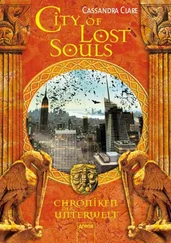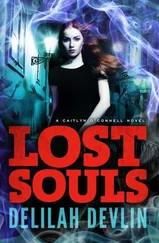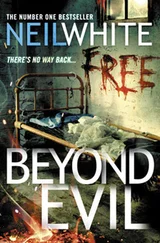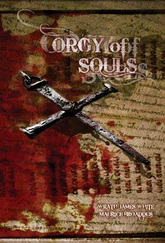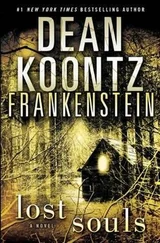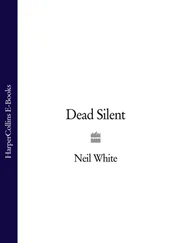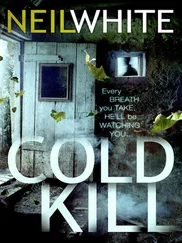1 ...6 7 8 10 11 12 ...20 It was the internet thieves Andy hated, the ones who scoured the web for his stories when cases first hit the courtroom and then just arrived for the sentence hearings. I didn’t do that. He had earned the right to those stories. And anyway, he knew the tricks. If he had a story that he knew would interest the nationals, he would get the local paper to hold it back from the website until after the London deadlines. By then his story would be in London and in print before the internet hyenas knew anything about it.
It was one of those stop-start days, the cells quiet, and I was filling in the gaps by drinking coffee with Sam Nixon, one of the defence lawyers.
Nixon was one of the main players in the courtroom. Tall and dapper, he looked every inch the lawyer. Single-breasted Aquascutum suit, neat and sharp, and Thomas Pink shirt, he shone success when surrounded by failure. The courthouse attracted showmen, those who strutted and boasted, promising clients acquittals they couldn’t deliver, but Sam was different. His accent didn’t have the polish of his looks, he spoke direct and bluntly and the magistrates liked him for it. If Sam Nixon said it had happened, then it had. The earth is flat? According to Mr Nixon it is, and that’s enough.
I was talking football with Nixon and watching the movement from the court corridor, the town’s drama. Young men in tracksuits slouched on hard plastic seats, there to see friends, to socialise, part of their scene. Bad skin. Bad teeth. Bad lives. The older ones sat back and looked bored. The first-timers wore suits and stared at the floor, picking at their nails.
A prosecutor loitered nearby, but he wasn’t saying much, more interested in Sam’s football tales than his caseload. He was a good lawyer—I had been around enough prosecutors to know that most of them are—but the machinery of the civil service knocked the fight out of them, so that being able to forget about work became the best part of the job.
I turned around at the sound of laughter from a corridor that ran from one of the back courts. A man bounced into the foyer, his arms swinging defiantly, his grin showing off brown teeth and a complexion that looked like he had hovered over too many joints, his skin tarred and lined. He turned in a circle, his chest out, his arms in a come-on pose, and said to Sam, ‘She’s a fucking star, that one,’ before strutting past the glass ushers’ kiosk and out of the main door.
The ‘fucking star’ emerged from the same corridor, a tired look in her eyes. I had met her before but I couldn’t remember her name. She was one of Sam’s assistants, pretty and blonde and tall, with her hair tied back into a ponytail that swished against the black suit cut tight to her body, her skirt just above her knees. She had the figure to carry it, and I sensed the mob of track-suits a few yards away turn to gape.
Sam Nixon nodded towards her. ‘Have you met Alison Hill, one of the lawyers at Parsons?’
I smiled and held out my hand. ‘I’ve seen you around.’ When Alison shook, she smiled back at me, her eyes warm.
‘Nice to meet you,’ she said. I sensed the confidence that comes from good education and good looks.
I nodded towards the exit doors. ‘Looks like someone was happy.’
Alison looked that way briefly, and then she said, ‘I lost.’
I thought back to the client as he’d bounced through the court foyer. He looked like he had spent his life being beaten by the system, every loss carved into the anger lines around his eyes. He had lost again but at least he had stood up to it.
‘I’m not so sure about that,’ I said. When she didn’t respond, I asked her, ‘Was justice done?’
‘Not yet,’ interrupted Sam, and he looked solemn.
Alison looked puzzled.
‘The bill,’ said Sam, and then he began to grin. ‘The job’s not done until we get paid. Then there’s justice.’
As Alison rolled her eyes, my eyes caught someone looking at Sam.
He was in the middle of a pack of drinkers. They all looked haggard and tired, their faces much older than their years, red and puffy, their eyes unfocused. Their clothes hung loose and stained, their movements were slow and deliberate.
I guessed that whoever it was, he wasn’t pleased with Sam’s last effort for him. His eyes were red like all the rest, drunk even that early in the morning, but the focus was sharp and clear. Despite the drink, his stare was hard and direct.
I looked at Sam, who acted like he hadn’t noticed him. He was talking to Alison.
I was about to say something when Sam reached down for his phone. When he looked at his screen, he seemed concerned for a moment and then held it up. ‘I’ve got a message to go and see Harry.’
Alison winced. ‘So I can have your office after all.’
Sam laughed, but I could tell from the look in his eye that there was some truth in that. I knew of Harry Parsons’ reputation, the curse of the local police, and I had heard that he was as ruthless with his staff.
As Sam left, I watched the drunk follow him with his eyes, the glare ever-present.
I turned to the prosecutor, a tall man in a shiny suit, with flashes of grey at his temples, badger-style, and frayed tips on his shirt collars. I didn’t know if he earned less or just cared less, but he seemed a fashion rail away from Sam Nixon. ‘Who’s that?’ I asked, as I nodded towards the man in the corridor.
The prosecutor looked for a moment, chewed his lip as he thought of a name, and then said, ‘Terry McKay. He’s here most weeks. Drunk, usually.’ He checked his watch. ‘They’ll have to call his case soon. If it gets adjourned over lunch, we won’t see him again.’
I smiled. Terry McKay. I made a note of the name and went back into court.
Laura sensed Pete’s anger as they arrived back at the station. He was gunning for Eric Randle now. She wasn’t sure that they had got it wrong, but it had turned Pete silent and brooding. The echoes of their footsteps were the only sounds as they walked along an old tiled corridor heading to the Incident Room. As they got there, Pete spoke in a whisper, an angry hiss. ‘Egan will love this,’ he said.
There were a few officers in the Incident Room, sifting through information brought in by those cops knocking on doors. As they walked in, someone shouted out, ‘Did you get Randle?’ and Laura saw all the faces in the room turn to look at them.
Pete threw his coat onto a desk. ‘Randle’s house is boarded up. He wasn’t there.’
All the faces looked back to their screens, glad they weren’t the ones who had to break the news to Egan. Some whistled, some smirked.
Pete stayed by his desk and rummaged around in his drawers for something. Laura sensed that it was just to make himself look busy, so she walked on and headed for Yusuf, the officer who had recognised Randle’s name earlier.
As she approached, he smiled, almost bashful. He seemed too timid to be a cop, the antithesis of Pete Dawson, but as she heard Pete cursing at the other end of the room she realised that it was no bad thing.
‘You said Eric Randle’s name came up in the abduction cases,’ she began. ‘How come?’
Yusuf sat back and nodded, pushed his glasses up on his nose. ‘His name comes up a lot,’ he said. ‘Whenever something happens, a murder or something like that, he calls in with information, reckons he is some kind of psychic. He’s done the same with the abductions.’
‘Psychic?’
Yusuf nodded again. ‘He told us to look near the railway.’
‘Is that it?’
‘He was warned off, so his calls stopped, but when I show you this, you’ll see why.’ He reached over to a binder and passed it to Laura. ‘I did some digging around after you went to see him.’
‘Were you on the abduction cases?’
Читать дальше


